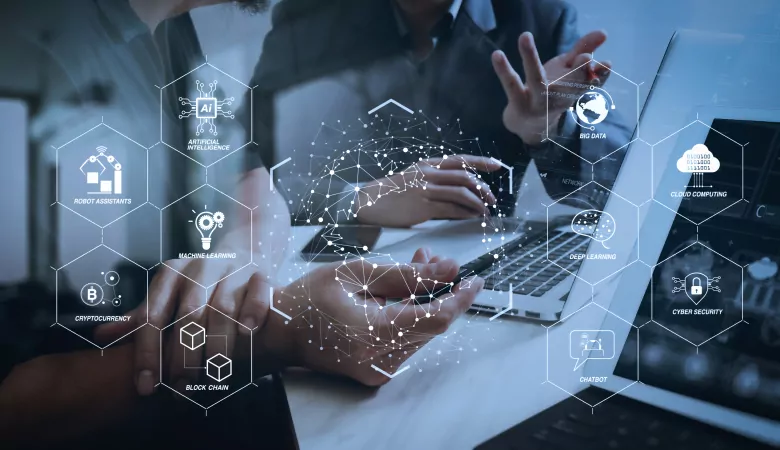How AI is Powering the Next Wave of Innovation

Artificial Intelligence (AI) is transforming industries by enabling smarter decision-making, automating complex tasks, and enhancing user experiences. In recent years, AI-powered tools and applications have become more advanced, thanks to improvements in natural language processing (NLP), computer vision, and machine learning algorithms. Businesses are integrating AI into their operations to boost efficiency, optimize workflows, and create more personalized experiences for customers.
From AI-driven automation to cutting-edge tools that assist in data analysis, AI is reshaping the way we work, communicate, and interact with technology. In this article, we explore some of the most powerful AI tools and applications that are driving innovation across industries.
1. AI-Powered Chatbots and Virtual Assistants
One of the most widely adopted AI applications in recent years has been chatbots and virtual assistants. These tools use NLP and machine learning to provide real-time, automated support for users across various industries.
- Customer Support Chatbots: AI-driven chatbots, such as IBM Watson Assistant, Drift, and Chatfuel, are helping businesses handle customer inquiries without human intervention. These chatbots can answer FAQs, troubleshoot issues, and even complete transactions.
- Voice Assistants: AI-powered voice assistants like Google Assistant, Amazon Alexa, and Apple’s Siri have become household staples. They can schedule appointments, control smart home devices, and provide instant access to information through voice commands.
- AI-Powered Help Desks: Companies are integrating AI-driven ticketing systems that analyze customer queries and route them to the appropriate department, reducing response time and improving efficiency.
With continuous improvements in speech recognition and conversational AI, chatbots and virtual assistants are becoming more sophisticated, handling complex queries with near-human accuracy.
2. AI in Image and Video Processing: Transforming Media & Security
AI-driven image and video processing technologies are revolutionizing industries such as healthcare, security, and entertainment.
- Facial Recognition Technology: AI-powered tools like Clearview AI, Face++, and Microsoft Azure Face API are being used for security, authentication, and surveillance. Businesses and governments use facial recognition for identity verification and fraud prevention.
- AI-Generated Content: Tools like DeepArt, Runway ML, and Deep Dream Generator are enabling artists and creators to generate AI-enhanced visuals and videos, pushing the boundaries of digital creativity.
- Automated Video Editing: AI applications such as Adobe Sensei and Magisto help automate video editing, making it easier for content creators to produce high-quality videos quickly.
While these tools offer impressive capabilities, they also raise concerns about privacy, deepfakes, and data security. As AI-powered visual tools advance, ethical considerations will play a crucial role in their development and deployment.
3. AI in Business Intelligence & Data Analytics
AI is transforming business intelligence (BI) by allowing companies to extract insights from large datasets, improve decision-making, and predict market trends.
- AI-Powered Analytics Platforms: Tools like Tableau AI, Microsoft Power BI, and Google Cloud AutoML help businesses analyze complex datasets and generate insights without requiring advanced programming skills.
- Predictive Analytics: AI models analyze historical data to predict market trends, customer behavior, and business risks. These predictions help companies optimize strategies and make data-driven decisions.
- AI-Based Financial Forecasting: AI-driven tools like DataRobot and Alteryx assist financial analysts by automating budget forecasting, investment analysis, and fraud detection.
As companies increasingly rely on data-driven decision-making, AI-powered analytics tools are becoming indispensable for gaining a competitive advantage.
4. AI in Healthcare: Transforming Diagnosis and Drug Discovery
AI is making a significant impact in healthcare, particularly in diagnostics, personalized medicine, and drug development.
- AI-Powered Medical Imaging: Tools like Zebra Medical Vision and Google DeepMind’s AI are being used to detect diseases in X-rays, MRIs, and CT scans with high accuracy.
- AI-Assisted Drug Discovery: AI platforms such as Atomwise and BenevolentAI use deep learning to identify potential drug candidates faster than traditional methods.
- AI in Personalized Healthcare: AI-powered platforms like IBM Watson Health analyze patient data to recommend personalized treatment plans, improving patient outcomes.
AI is revolutionizing healthcare by making diagnoses faster and more accurate, but challenges such as data privacy and regulatory approval remain.
5. AI in Automation & Smart Manufacturing
The rise of AI-powered automation is transforming industries such as manufacturing, logistics, and supply chain management.
- AI-Powered Robots: Companies like Boston Dynamics and FANUC are developing robots capable of performing complex assembly tasks, warehouse operations, and even quality control.
- AI in Supply Chain Optimization: AI-driven tools help businesses predict demand, manage inventory, and reduce operational costs by analyzing real-time market trends.
- Self-Learning AI Systems: AI-powered robots are now capable of learning from past experiences, improving efficiency without requiring manual reprogramming.
With Industry 4.0 on the rise, AI is playing a central role in smart manufacturing and supply chain automation.
6. Ethical Considerations & Challenges in AI Applications
As AI adoption grows, businesses must address critical challenges related to bias, data privacy, and ethical AI deployment.
- AI Bias in Decision-Making: AI models trained on biased datasets can reinforce discriminatory practices, particularly in hiring, lending, and law enforcement.
- Data Security & Privacy: AI applications rely on massive datasets, raising concerns about how businesses collect, store, and use personal information. Regulations such as GDPR and CCPA are enforcing stricter data protection policies.
- AI Regulation & Accountability: Governments and tech companies are working on AI governance frameworks to ensure that AI systems are used responsibly.
For businesses, developing ethical AI policies and maintaining transparency will be critical in gaining consumer trust and ensuring long-term success.
Final Thoughts: The Future of AI Tools & Applications
AI is no longer an experimental technology—it is now a core component of modern business operations. From customer service chatbots and business intelligence platforms to AI-powered healthcare solutions and automation tools, AI applications are driving efficiency, innovation, and competitive advantages.
As AI continues to evolve, businesses must focus on adopting AI responsibly, ensuring ethical use, and preparing for the next wave of AI advancements. Companies that leverage AI strategically will lead their industries, while those that fail to embrace AI may struggle to keep up.
The future of AI tools and applications is bright, powerful, and full of potential—and we are just getting started.




